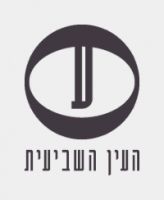The Israeli establishment used to rely on the IDF Censor to make sure the media didn’t ask questions. Nowadays it uses court-sanctioned gag orders.
By Shuki Tausig
Did you hear about…and about…or what about…how could you have missed that? After all, we are talking about newsworthy events, the kind that open the 8 o’clock news. So how come you didn’t hear about them?
You didn’t hear about them because the police/Shin Bet/some other body rushed to ask the court to issue a gag order on the attack/investigation/affair. The courts usually serve as a rubber stamp in these cases, especially in cases when security is somehow involved. A representative of the system comes in with “classified intelligence,” and the judge, usually of a lower court, makes the story disappear.
So how did you not hear about the gag order? Because the gag order, the Big Brother of the Israeli media, has a younger brother: a gag order on the existence of the gag order. Like the Cat in the Hat who pulls out endless cats from his top hat until the Cat himself is no longer visible, the institution of gag orders is built in such a way that leaves the public with nothing.
Once upon a time we used to have the IDF Censor. Well, we still do, but they no longer act like tyrants. The court system — the same one that rushes to issue scandalous gag orders — has restrained the court system and forced it into leniency. If in the past the censor could redact to its heart’s content, the high-profile case Schnitzer v. Chief Military Censor, which reached the High Court in 1989, compelled the military to explicitly state that there is a “near certainty that the publication will cause substantial and grave harm to security.”
It is true that this is both convenient and flexible, and the the IDF Censor still redacts, whether entirely or partially, thousands of articles a year. But this is not enough for the various arms of the establishment. They do not want to debate with media outlets, explain themselves to journalists, or start to compromise over partial censorship. They want radio silence, and immediately. With time they learned to use not only the IDF Censor but also, and perhaps mainly, gag orders.
Read: IDF Censor redacts 1 in 5 articles it reviews
It is true that many times there is every justification to forbid publication of an important story, whether or not it is related to security. Sometimes the police need the industrial peace in order to crack a stubborn suspect. Sometimes the Shin Bet needs it to prevent terrorist attacks. But many times it is difficult — not to say impossible — to see the justification behind the silence imposed upon us by the government, with the help of the courts.
Why are gag orders even issued in the first place? To prevent embarrassment, usually. When a difficult event takes place, the convenient way to avoid hard questions and a critical media is to create a blackout. This helps those in power avoid not only the need to respond — it prevents the very ability to ask questions. Since there is a gag order, and a gag order on that gag order. So sit quietly and let us do our job — or cover up that which we don’t want made public — in peace.
Repeated attempts to inject critical, overseeing elements into the system, such as forcing the authorities to allow a media representative to represent the public interest when gag orders are issued, did not bear fruit. When gag orders are issued without any oversight, people begin to suspect that the practice is not necessarily being used for our benefit. At the very least it comes off as foolish and hasty.
So why did I tell you all of this today? No reason. Not anything you need to know about.
Read this article in Hebrew.



